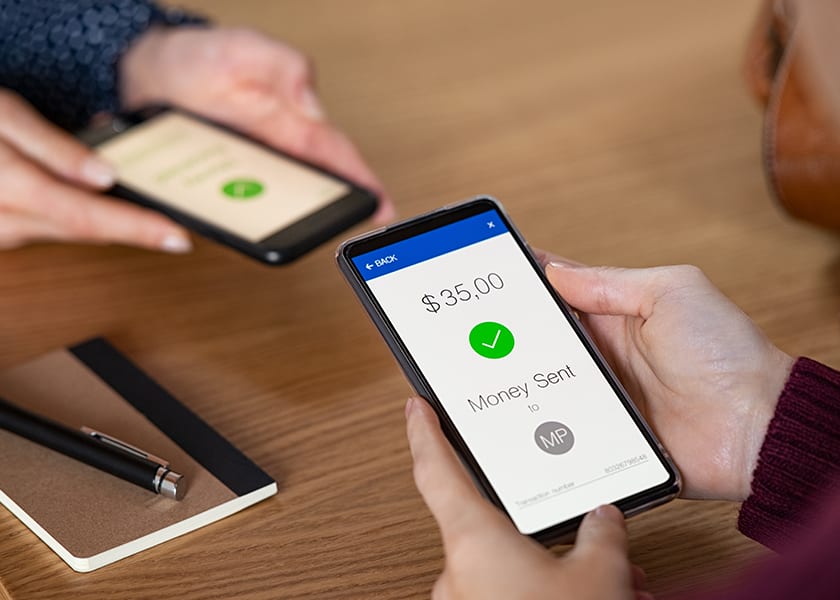Top Money Transfer Provider
XE 
Easy Transfers From Your Bank Account
- Business And Consumer Friendly
- Competitive Exchange Ranges
- Free Currency Tools
- No Minimum Amounts
Online Money Transfer Tips For Consumers
Are you thinking of transferring money to a company or an individual abroad? Then read these 10 money transfer tips to find out how to send cash overseas quickly, cheaply, and safely.
1. Compare the Cheapest Way to Transfer Money
There are many different ways that you can send your wages or pension abroad - known as sending 'money transfers' - so it's important to compare the costs of all your options before deciding which one is best for you. Transfer charges vary considerably between providers but online services tend to charge much lower fees than high street banks because they don't have branches to maintain. But while internet-based services may be cheaper, dealing with them does take more time - usually around five working days - than sending an international bank transfer (see below).
2. International Bank Transfers
International bank transfers are the cheapest method of sending money overseas because they're based on an exchange rate that doesn't include any transaction fees. So, your money goes further when you transfer funds this way. The downside is it can take several working days to process an international transfer - although some banks offer the service 24 hours a day, seven days a week - and you'll need to provide documents proving where you got the funds from before they will make your payment.
3. Telegraphic Transfers (TT)
If you want to send cash faster than through an international bank transfer but don't feel confident about sending payments online, then telegraphic transfers might be right for you as they're processed by some banks as quickly as three hours. But it is vital to be aware that your money is only protected by the security of the sending bank rather than held in a ring-fenced account, so some providers may not refund you if they go bust before the cash leaves their account.
4. Prepaid Cards
Prepaid cards allow you to load a card with funds from your personal bank account and then use those funds to pay bills or send money transfers abroad on a one-off or regular basis without incurring high charges. Although, there can be some fees for topping up your prepaid card and changing currencies - make sure you check exactly what these are before parting with any cash as they vary from provider to provider.
5. Cash Transfers
Cash transfer services allow you to take cash out of your account and send it overseas to the card or bank account details of someone in another country. Fees can be as low as £4 for each transaction, but there's usually a minimum amount you need to send and it can't be withdrawn as physical cash. And, if your recipient doesn't have a bank account, they'll often have to travel to an agent location and pay fees that could almost double the cost of sending money this way.
6. Using a Bureau De Change
For those who want to use their own currency - pounds sterling (GBP) - when transferring funds overseas, then using a bureau de change is one option available. However, it isn't advisable due to the unfavorable exchange rates that bureaux compete with each other to offer - so it's best to compare your options on a currency comparison website first. And, if you're transferring large amounts of money overseas then bureaux will often ask you to make a reservation for a certain amount at their counter before allowing you to pay them in cash or cheque.
7. Online Currency Transfer Services
Online currency transfer services are very similar to bureaux de change but they work hard not to undercut each other because they all buy and sell currencies from each other rather than competing over who can give the best rate. So, it is possible to find out which company is offering the most favorable rate online and then get them to trade your money for you. However, online currency transfer services can tack on fees for exchanging some currencies and withdrawing cash at a bureaux' ATM machine.
8. Online Money Transfers
Online money transfer services allow you to manage your money from anywhere in the world as they have websites that let you log in to your account, authorise payments, and control what happens with your funds if you ever need to be away from home for any length of time. But there are fees attached to using these services - so make sure you read the small print before parting with any cash.
9. Bank Giro Credit Societies (BGCS)
Although many people don't think about BGCSs when transferring funds overseas, it is actually possible to do this through one of them either at their own bank or over the counter at another financial institution. However, you'll be asked to provide your original foreign currency - not sterling - and it may be that you can only transfer small amounts of cash for up to one month under this system.
10. Currency Cloud Storage Service
Currency cloud storage services allow you to take control of your money by moving it into a different form (normally gold) - but they also let you use any surplus balance in whatever way you want, which includes transferring the funds to open accounts with other institutions including banks and forex providers around the world. The charge is usually very low even if you make multiple transfers within a predetermined time period which means there won't be any nasty surprises when settling your account.
Conclusion
When it comes to transferring money, there are a lot of options to choose from. You can go through your bank, but you may end up paying more in fees. Alternatively, you could use a remittance service like Xoom which is much more convenient but may come with higher fees. It all depends on what you're looking for and what's important to you.















